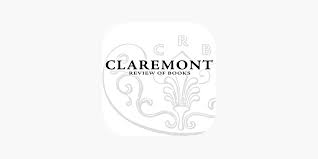The Founders’ priceless legacy

The New Criterion’s Visiting Critic delivers the second annual Circle Lecture.
Editors’ note: The following is an edited version of remarks delivered for The New Criterion’s second annual Circle Lecture on September 30, 2020.
However unfashionable to say so at the moment, the American Founding is one of the noblest achievements of the Western Enlightenment. It created something breathtakingly new in history: a self-governing republic that protects the right of individuals—not serfs, not subjects, but equal citizens before the law—to pursue their own happiness in their own way. Who could have imagined that such a triumph would come under the violent attack that now seeks to deny and besmirch it? Whether it flies the banner of The 1619 Project, Black Lives Matter, or Critical Race Theory, the new anti-Americanism condemns the Founding Fathers’ project as conceived in slavery, not liberty, and dedicated to the proposition that we can never be equal citizens with equal rights.
It is a militant anti-Americanism, too. Like the iconoclasm of the most violent English Puritans, who smashed the faces off the carved saints and angels in one sublime medieval church after another, or of the French sans-culottes, who dug up and desecrated nine centuries of royal bodies from their tombs in the Abbey of Saint-Denis, defacing for good measure the statues of the Old Testament kings on the façade of this first great Gothic building, today’s anti-Americanism seeks to pulverize and obliterate our national past as something too offensive and obscene to have existed.
The current upheaval is the latest paroxysm of a cultural revolution that has gained momentum for half a century or more, and its trajectory from the universities to popular culture is too well known to need repeating. What I want to discuss here is the precious value of our inheritance from the Founding Fathers that today’s vandals want to destroy. If they succeed—since history, even our own, doesn’t always go forward and upward, despite the claims of the so-called “progressives”—we will find ourselves in a new Dark Age of constraint and superstition.
At the heart of the Founding was a thirst for liberty. In announcing our national freedom from imperial domination, the Declaration of Independence began by asserting our right to individual liberty. For the Founders, that liberty was not some vague abstraction. They understood it concretely, as people do who’ve suffered its opposite. They grasped it like those Eastern Europeans who once lived under Communist tyranny, for instance, or like Jews who survived the Holocaust.


